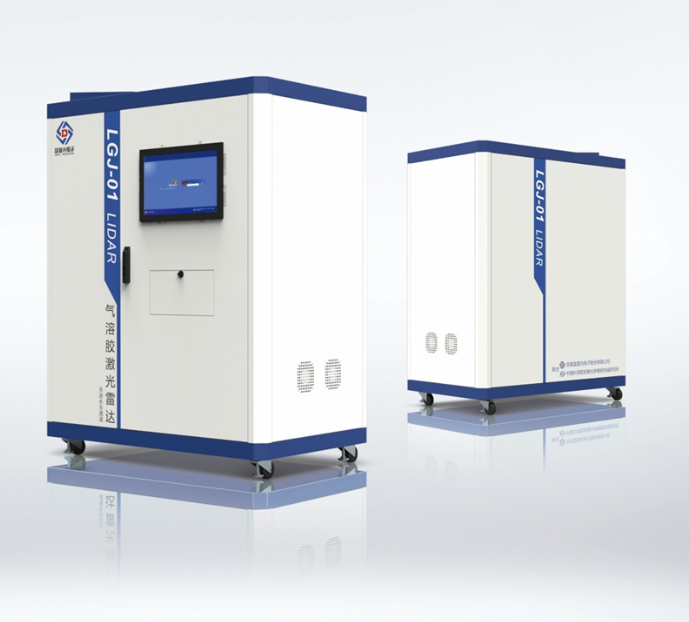

Product Introduction:
This product is a high-performance aerosol lidar developed by our company. It utilizes the interaction radiation signals between laser and aerosols in the atmosphere to acquire characteristics and distribution signals of aerosols. The instrument emits lasers at 355 nm, 532 nm, and 1064 nm, using a telescope to collect the backscattered signals from aerosols (355 nm extinction, 532 nm vertical, 532 nm parallel, and 1064 nm extinction). It applies relevant algorithms to analyze the properties of aerosol particles (identifying particulate matter, dust, water clouds, ice clouds, etc.), as well as the extinction coefficient, depolarization ratio, wavelength exponent, boundary layer height, aerosol optical thickness, and cloud information.
This product is designed for continuous monitoring of atmospheric aerosols, particularly observing the entire process of particulate pollution formation, development, decay, and dissipation during haze events. It helps to understand the interaction processes between particulate distribution within the boundary layer and near-surface particulate pollution (such as downward settling or upward transport). This data provides valuable support for understanding particulate dispersion patterns and the causes of near-surface particulate pollution, offering decision support for environmental protection and meteorological departments.
The system can be installed in a fixed position (indoors or outdoors) or used in a vehicle-mounted configuration.
Product Features:
Next-generation high-energy lidar product.
Incorporates an additional 1064 nm wavelength detection channel alongside dual-wavelength lidar, reducing assumptions in radar data analysis equations and enriching the information obtained about atmospheric particulate detection, leading to a more thorough and comprehensive inversion of atmospheric particles.
Enhanced penetration capability allows for obtaining pure background data from high-altitude atmosphere, even under heavy pollution, high humidity, or cloudy conditions. This serves as a reference value for lidar inversion algorithms, improving the accuracy of measurement data.